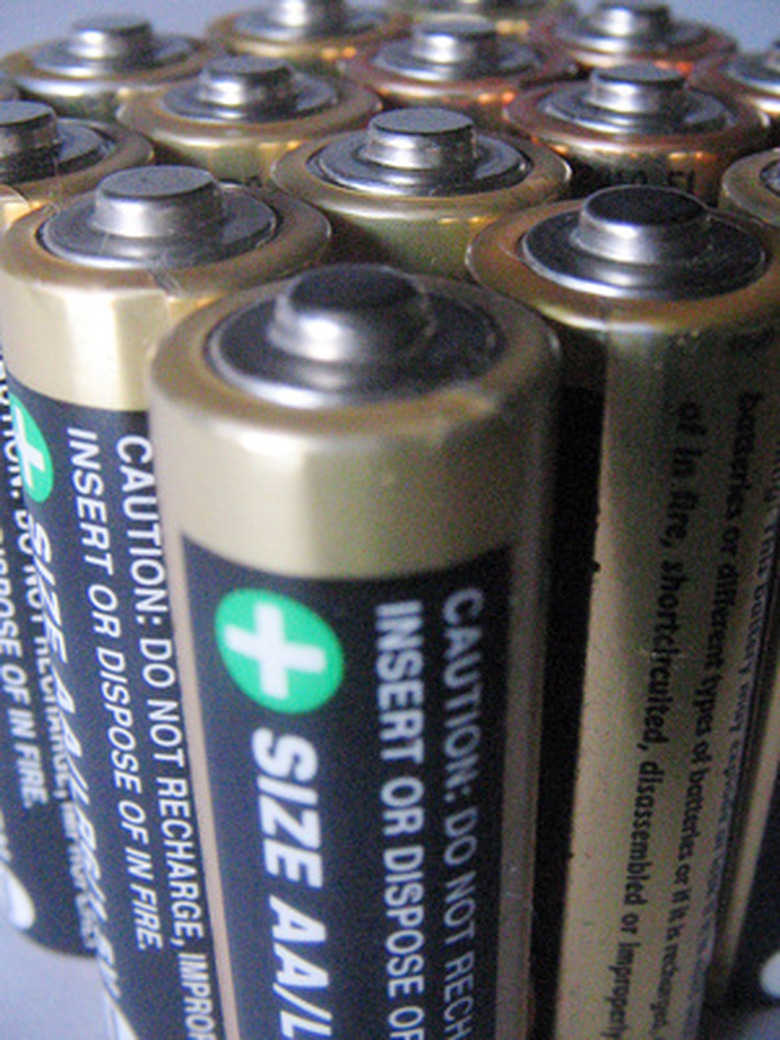The Difference Between AC Batteries & DC Batteries
Inventor Nikola Tesla took on Thomas Edison in a battle over electricity distribution in the 1800s. Edison discovered direct current (DC), while Tesla showcased alternating current (AC). This sparked a conflict that led to AC eventually being favored by power generating companies because of its many advantages over DC. Alternating current is still more prevalent in home applications but batteries provide a plentiful source of DC power. AC offers steady, controllable current that can travel over long distances while DC offers portable, self-contained current that has a limited life.
DC Batteries
DC Batteries
DC batteries use direct current, which flows in a single direction and is generally used to power small appliances, radios, laptops, mobile phones and other electronic gadgets.
DC Power and Environmental Issues
DC Power and Environmental Issues
At the onset of the 21st century came a renewed interest in DC's potential. Concerns about global warming led to innovations in an effort to control a potential environmental disaster. DC battery power is used in electric cars, which work to reduce carbon dioxide emissions, a main contributor to global warming.
DC Battery Power Depletion
DC Battery Power Depletion
DC produces a steady current that is easily depleted. Although it can be restored, the loss of power is significant. This is the effect that can be seen in batteries over time; they gradually lose power until they stop working.
AC Batteries
AC Batteries
AC batteries are not actually batteries, but converters that create AC current out of DC battery supplies. Alternating current flows in two directions and is mostly used for power distribution such as the power to the electrical outlets in your home. AC can carry electricity several miles without a loss of power and can also be controlled to increase or decrease power with a transformer. An AC converter on a DC battery creates a more controllable AC energy source with the portability and self-contained benefits of a battery.
DC Batteries Powering AC
DC Batteries Powering AC
One of the most significant examples of DC batteries with AC converters is power grids (the sources of most electrical power for homes and businesses). Because of the reliance the modern world has on electricity, power grids now have back up DC batteries. These DC batteries have converters that allow the direct current to be converted into alternating current, allowing many areas to have power even if the supply of AC is interrupted.
Houses may also use DC battery power to supply converted AC power in the form of backup generators.
Cite This Article
MLA
Johnson, Steve. "The Difference Between AC Batteries & DC Batteries" sciencing.com, https://www.sciencing.com/difference-ac-batteries-dc-batteries-6306630/. 24 April 2017.
APA
Johnson, Steve. (2017, April 24). The Difference Between AC Batteries & DC Batteries. sciencing.com. Retrieved from https://www.sciencing.com/difference-ac-batteries-dc-batteries-6306630/
Chicago
Johnson, Steve. The Difference Between AC Batteries & DC Batteries last modified March 24, 2022. https://www.sciencing.com/difference-ac-batteries-dc-batteries-6306630/
